The Aptitude Myth
How an Ancient Belief Came to
Undermine Childrens Learning Today
Cornelius N. Grove
ROWMAN & LITTLEFIELD EDUCATION
A division of
ROWMAN & LITTLEFIELD PUBLISHERS, INC.
Lanham New York Toronto Plymouth, UK
Published by Rowman & Littlefield Education
A division of Rowman & Littlefield Publishers, Inc.
A wholly owned subsidiary of The Rowman & Littlefield Publishing Group, Inc.
4501 Forbes Boulevard, Suite 200, Lanham, Maryland 20706
www.rowman.com
10 Thornbury Road, Plymouth PL6 7PP, United Kingdom
Copyright 2013 by Cornelius N. Grove
All rights reserved. No part of this book may be reproduced in any form or by any electronic or mechanical means, including information storage and retrieval systems, without written permission from the publisher, except by a reviewer who may quote passages in a review.
British Library Cataloguing in Publication Information Available
Library of Congress Cataloging-in-Publication Data
Grove, Cornelius N.
The aptitude myth : how an ancient belief came to undermine children's learning today / Cornelius N. Grove.
pages cm
ISBN 978-1-4758-0435-5 (cloth : alk. paper) ISBN 978-1-4758-0436-2 (pbk. : alk. paper) ISBN 978-1-4758-0437-9 (ebook)
1. Academic achievementUnited States. 2. Achievement motivation in childrenUnited States. 3. Learning ability. 4. EducationUnited States. I. Title.
LB1062.6.G77 2013
153.9dc23
2013002028
 TM The paper used in this publication meets the minimum requirements of American National Standard for Information Sciences Permanence of Paper for Printed Library Materials, ANSI/NISO Z39.48-1992.
TM The paper used in this publication meets the minimum requirements of American National Standard for Information Sciences Permanence of Paper for Printed Library Materials, ANSI/NISO Z39.48-1992.
Printed in the United States of America
With apologies to Herbert Spencer,
I dedicate this book to American parents who
care far less about their children's experiencing
"pleasurable excitement" today, and far more about
their children's being highly skillful, knowledgeable,
and competently creative thirty years from now.
Foreword
Being an independent scholar comes with a disadvantage. I dont know a famous scholar whom I can ask to write this Foreword. But independent scholarship also has an advantage. Im able to allow historical facts to endlessly percolate in my mind, uninterrupted by others trains of thought. Thus unfettered, I gradually came to understand that many Americans have a culturally inherited a set of beliefs about biologically inherited fixed intelligence. These beliefs comprise an ancient myth that, today, is undermining our childrens capacity to learn. In particular, I came to four insights that might well be unique scholarly contributions:
The deep cause of many Americans assumption that inherited aptitude determines ones ability to learn is a belief in inborn mental givens, traceable to Plato and Aristotle.
The Calvinist and Romantic views of child rearing, although diametrically opposed to each other, shared one fateful assumption: that each child has God- or Nature-bestowed givens.
The belief in the superiority of organic mental development surreptitiously engenders a culture of relative passivity toward learningpassivity by parents, teachers, and pupils.
The popular notion of a childs potential is not an expansive principle but a constraining and limiting one. Col. Francis Parker put it best: Thus far shalt thou go and no farther.
Whether or not these insights will stand scholarly scrutiny, Id like to make this point: They came to me while, in my metaphorical garret, I turned over and over and over within my mind numerous historical facts. Yahoo recently recalled to its offices all employees working at home in order to cultivate more innovation through frequent face-to-face collaboration. But theres still much to be said in favor of the determined, persistent thinker, working alone.
Cornelius N. Grove
Acknowledgments
Whatever merit this volume might possess is due, in part, to the assistance and guidance I received from three individuals. First and foremost, my gratitude goes to my decades-long friend and professional associate Kay M. Jones, who edited and reedited drafts with her consummate eagle eye, discovered old original sources, alerted me to possible misleading interpretations by potential readers, expertly and almost single-handedly constructed the thorough index, and made countless thoughtful suggestions along the way. Kay, you have my enduring, heartfelt appreciation for treating this book as though it were your own.
Two other long-time friends and professional associates provided guidance and many applicable suggestions. Willa Zakin Hallowell, my Grovewell business partner for twenty-three years, read drafts of all eighteen chapters and back cover copy, offering many ideas about how I could express myself in ways that would have more Velcro. Kathy Molloy, our consultancys first senior associate, read drafts of all eighteen chapters and the front materials, offering thoughtful and useful observations. Kathy also suggested the title of this book. Willa and Kathy, thank you for your sustaining interest, support, and flow of worthwhile observations and cautions.
During my five years of research and writing, I came to deeply admire the painstaking research of the professional historians on whose publications I was relying. I feel especially grateful for the works of R. Freeman Butts, John Cleverley and D. C. Phillips, Lawrence A. Cremin, Merle Curti, Kieran Egan, Stephen Jay Gould, Gerald L. Gutek, Richard Hofstadter, Lynn Hunt, Carl F. Kaestle, Herbert M. Kliebard, Edward A. Krug, Denis Lawton and Peter Gordon, Dorinda Outram, R. S. Peters, Diane Ravitch, Bertrand Russell, Charles L. Sanford, Joel Spring, David Tyack and Elisabeth Hansot, Edgar B. Wesley, and Bernard Wishy.
Cornelius N. Grove
Introduction
This is a book for well-educated Americans who worry about how well todays young Americans are being educated. This is also a history book.
Now you might think that a history book couldnt possibly also be a book that addresses a persistent, even worsening, crisis facing our children today and into the foreseeable future.
But it can be. Heres how: Part of our crisis about how well young Americans are being educated derives from Americans customarywaysofthinking about children, parenting, learning, and teaching. These ways of thinking are customary because Americans absorbed them during their childhoods from their parents and neighbors, who in turn absorbed them during their childhoods from their parents and neighbors, who in turn absorbed them during their... well, you get the picture.
These customary ways of thinking did not originate in America. They did not originate in our lifetimes, nor in our parents lifetimes. These ways of thinking originated far away and very, very long ago. It will prove useful to examine why these ways of thinking originated and how they gained wide public acceptance within the United States.
Perhaps youre wondering, What are these customary ways of thinking?
Instead of a direct response, here are a few questions in return.
Were you aware that many Americans assume that each newborn baby arrives with a fixed set of mental abilities?... and that those inborn abilities largely govern the ways in which, and the extent to which, that child will succeed in school? Its a fact: The abilities measured by aptitude and I.Q. tests are believed by many American adults to record the outer limits on what and how much each child can learn in classrooms.

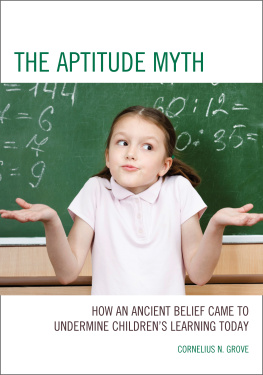
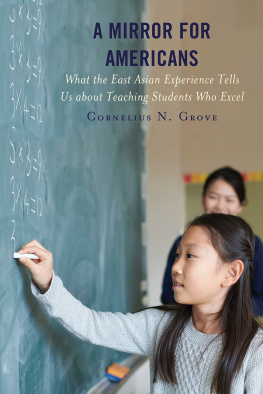

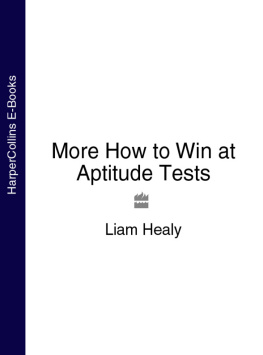
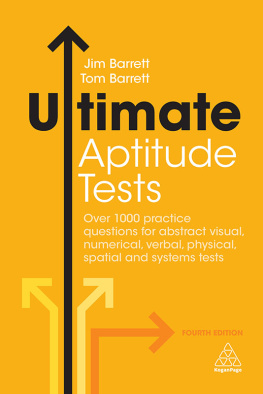
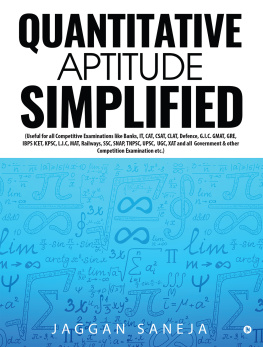
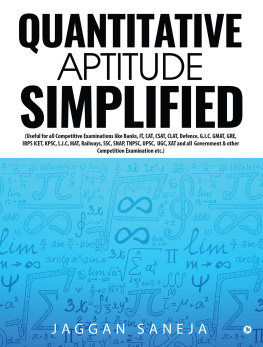
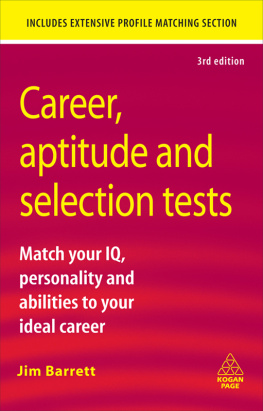
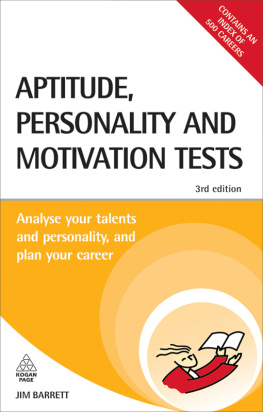

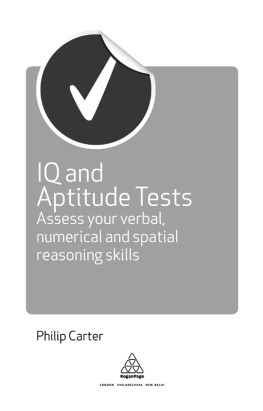
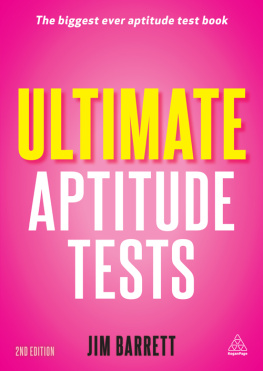
 TM The paper used in this publication meets the minimum requirements of American National Standard for Information Sciences Permanence of Paper for Printed Library Materials, ANSI/NISO Z39.48-1992.
TM The paper used in this publication meets the minimum requirements of American National Standard for Information Sciences Permanence of Paper for Printed Library Materials, ANSI/NISO Z39.48-1992.